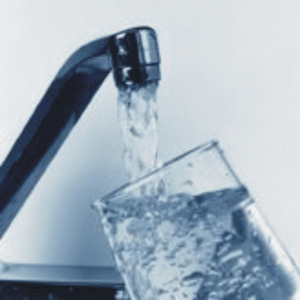This article is not intended to give you an excuse not to drink water or to scare you. It’s a topic which I thought was interesting and at an early age thought not possible. Let’s explore.
Is it possible to drink too much water? Ok it’s time to get sciencey!
I still get shocked by the lack of water some of my clients drink. In fact its usually the first thing I get them to improve. I was telling a new client the other day about the imporatance of drinking water and it got me thinking of a question I had about water when I was a teenager.
In high school I remember asking my PDHPE teacher if it was possible to drink too much water. I had heard somewhere that you could and that it lead to some pretty serious problems. “No no no” he said as he shook his head dismissively “you can’t drink too much water”. Well i’m sorry Mr blank but I have to disagree with you.
Drink plenty of fluids, lots more water, keep your hydration up, more more more…
You’ve probably heard one of these sayings before. We know as a fact that water is essential to the functioning of your body. But have you ever wondered if it’s possible to drink too much water. Here’s what you need to know:
Can You Really Drink Too Much Water?
Yes. Drinking too much water can lead to a condition known as water intoxication and to hyponatremia which is a related problem resulting from the dilution of sodium in the body. Water intoxication is most commonly seen in infants under six months of age and sometimes in athletes. A baby can get water intoxication as a result of drinking several bottles of water a day or from drinking infant formula that has been diluted too much. Athletes sweat heavily, losing both water and electrolytes. Water intoxication and hyponatremia result when a dehydrated person drinks too much water without the accompanying electrolytes.
What is Water Intoxication?
When too much water enters the body’s cells, the tissues swell with the excess fluid. Your cells maintain a specific concentration gradient, so excess water outside the cells (the serum) draws sodium from within the cells out into the serum in an attempt to re-establish the necessary concentration. As more water accumulates, the serum sodium concentration drops — a condition known as hyponatremia. The other way cells try to regain the electrolyte balance is for water outside the cells to rush into the cells via osmosis. The movement of water across a semipermeable membrane from higher to lower concentration is called osmosis. Although electrolytes are more concentrated inside the cells than outside, the water outside the cells is ‘more concentrated’ or ‘less dilute’ since it contains fewer electrolytes. Both electrolytes and water move across the cell membrane in an effort to balance concentration. So in theory cells could swell to the point of bursting!
From the cell’s point of view, water intoxication produces the same effects as would result from drowning in fresh water. Electrolyte imbalance and tissue swelling can cause an irregular heartbeat, allow fluid to enter the lungs, and may cause fluttering eyelids. Swelling puts pressure on the brain and nerves, which can cause behaviours resembling alcohol intoxication. Swelling of brain tissues can cause seizures, coma and ultimately death unless water intake is restricted and a hypertonic saline (salt) solution is administered. If treatment is given before tissue swelling causes too much cellular damage, then a complete recovery can be expected within a few days.
It’s Not How Much You Drink, It’s How Fast You Drink It!
The kidneys of a healthy adult can process15 litres of water a day! You are unlikely to suffer from water intoxication, even if you drink a lot of water, as long as you drink over time as opposed to drinking an enormous amount at one time. To calculate the amount of water your body needs take your weight and multiply it by 0.33 and this will give the amount that is suitable for you and your body. For example a petite woman’s amount would be significantly different to a stocky male standing 6 foot 6!
Keep in mind you need more water if the weather is very warm or very dry, if you are exercising, or if you are taking certain medications. The bottom line is this: yes it is possible to drink too much water, but water intoxication is a very uncommon condition. So no more excuses, go fill up your glass. Water is VITAL to the healthy functioning of your body and it’s systems.
p.s coffee, tea, juice and all other fluids do not count as your water intake!!!
If you think someone else might find this interesting – share the love people by sharing this article using the share links below! 🙂
(photo courtesy of eftrends)
